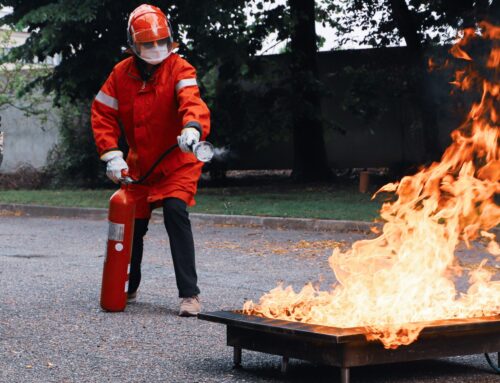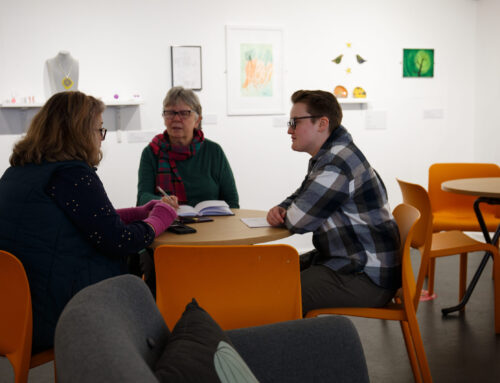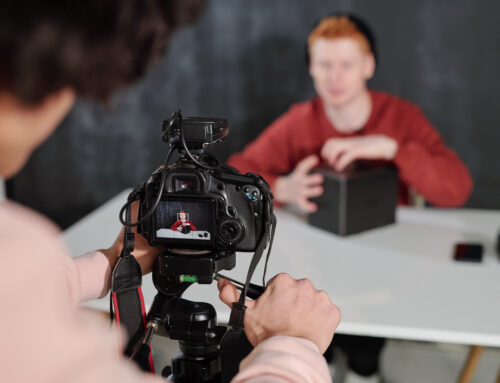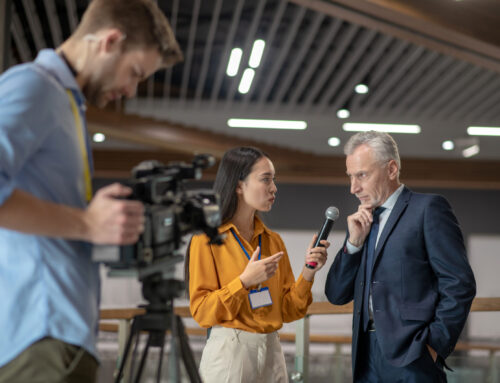You can control the narrative of your testimonial video if you follow these tips for success when briefing your client
There’s nothing more frustrating than when you’ve done an amazing job for a client, you ask them to leave a google review, and it just says something like ‘great working with them, highly recommend.’
Er, excuse me? What about how I fitted you in last minute for the training course? How I specifically brought in a trainer who had worked in your industry before? How I tailored the course to suit your specialisms?
What I’m saying is, when you leave it to the client to come up with the content for the testimonial, they’ll often leave out the most important stuff.
Which is why when I produce testimonial videos, I hold two pre-production meetings.
The pre-production meeting with my client
The first is with my client, so the company who the case study video is for.
With this, I go through every aspect of the service they provided for that client:
- Who is your client? Is this the kind of client you normally work with?
- Do you know why they needed your help?
- How did they find you?
- Why did they choose you?
- What services did you provide?
- Was there anything you did particularly special for them that you’d like to be highlighted?
- What’s your USP? Did this come into play here? What can they say about that?
- Did your service solve their problems?
From this, I’ve got a cracking overview of what makes my client unique in the industry, and the kind of points that should be highlighted in the interview.
If you’re producing the video yourself for your own business, spend some time thinking about those questions too. You don’t want a generic ‘yeah they provided a great service’ testimonial. You want to go into specifics, and those questions will enable you to do that.
The pre-production meeting with the interviewee
The pre-production process doesn’t stop there though!
While my client has their perspective of the service they offered, often their client (the interviewee) will have a completely different point of view to put across.
And it’s well worth considering what they have to say, because their perspective is the one that’s really relatable to the potential clients watching the video.
So perhaps you think that the speed with which you booked the training session is the most important point to highlight.
But they might say that they’d previously had terrible customer service from other training providers, and the fact that you offered a full planning meeting at the start to outline why the training was needed was what really blew them away.
These points are also what they’re likely to speak most passionately about.
I will also go over the points that my client wanted them to highlight, and almost ‘pre-interview’ them. This is a technique I picked up during my time as a BBC radio producer.
Essentially, you’re finding out what their best answers to the questions are, so when it comes to the filming day, you prompt for those answers rather than wasting time with questions they don’t really care about.
This streamlines the filming session – but also makes them feel far more comfortable as they’re briefed about the topics in advance.
Preparing the video testimonial questions
What’s really important to me is that I make the case study filming session feel really conversational and relaxed.
The vast majority of people I film have no experience of being on camera, and I know it can be daunting.
This is why I ask them to look at me, rather than at the camera, and they just respond to questions I’m asking as opposed to learning a script.
So the questions I ask are essential to ensuring the testimonial covers all the necessary topics.
When phrasing questions, it’s great to follow the ‘TED’ rule: ‘tell, explain and describe’. These are ace verbs to start questions with, as they lead to open, descriptive answers.
The TED rule is in complete contrast to ‘closed questions’, e.g. ‘did you enjoy working with the company’ – these often garner a ‘yes’ or ‘no’ answer, and are basically useless for videos!
After that, it’s a case of adding in all the questions you need to get answers which fully tell the story, as well as those bonus questions you know which give great answers.
But if they mention something when filming which you want to ask a follow up question about, don’t be afraid to go off script. I think this is the best way to make the filming feel conversational – the script is just a tool so you know everything has been covered.
If you’re looking for a video production company to take all the hassle out of producing case study videos for your business, then get in touch for a free 30 minute video marketing review with Creative Director Hannah Quinn.
And if you want the full testimonial service, we also partner with TukTuk Creative Marketing and creative copywriter Genevieve Lowles, so that you can also have a SEO optimised blog written from the testimonial interview, which is uploaded to your website for you.





